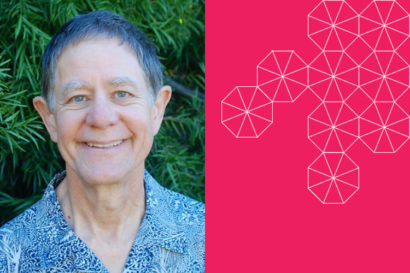Berkeley Talks: Neurobiologist David Presti on the ritual use of psychoactive plants
Presti spoke March 21 at the Phoebe A. Hearst Museum of Anthropology, alongside the new exhibit, Pleasure, Poison, Prescription and Prayer: The Worlds of Mind-Altering Substances
March 28, 2019
For millennia, humans have cultivated deep relationships with psychoactive plants — relationships embedded within and guided by ritual frameworks honoring the powers of these plants as allies. As cultures have evolved, so also have these plant-human interactions, often in ways that are highly interdependent.
David Presti, who teaches neurobiology, psychology and cognitive science at UC Berkeley, gave an opening talk March 21 for the Lounge Lecture Series at the Phoebe A. Hearst Museum of Anthropology, alongside the new exhibit, Pleasure, Poison, Prescription and Prayer: The Worlds of Mind-Altering Substances, which runs March 15 to Dec. 15.
Presti has been on the faculty of Berkeley’s Department of Molecular and Cell Biology for 28 years. He teaches classes on topics related to brain, mind, consciousness, neurochemistry and psychopharmacology. For more than a decade, he worked in the treatment of addiction and of post-traumatic stress disorder at the Department of Veterans Affairs Medical Center in San Francisco. And for the past 15 years, he has been teaching neuroscience and conversing about science with Tibetan Buddhist monastics in India, Bhutan and Nepal. He is author of Foundational Concepts in Neuroscience: A Brain-Mind Odyssey (2016) and Mind Beyond Brain (2018).
For upcoming events, visit the Heart Museum of Anthropology’s website.
